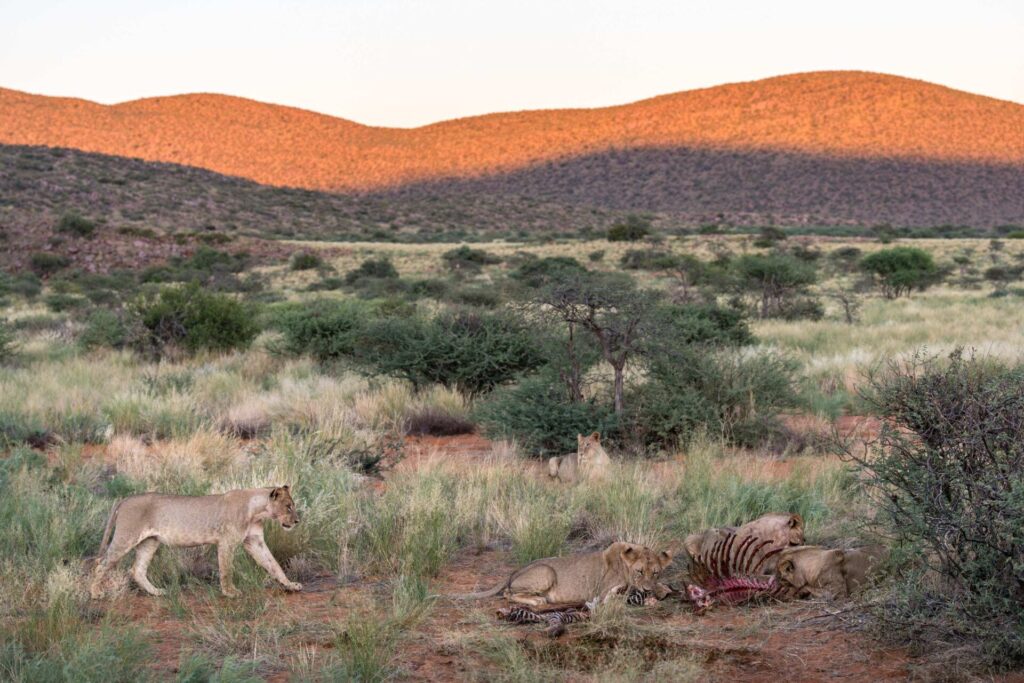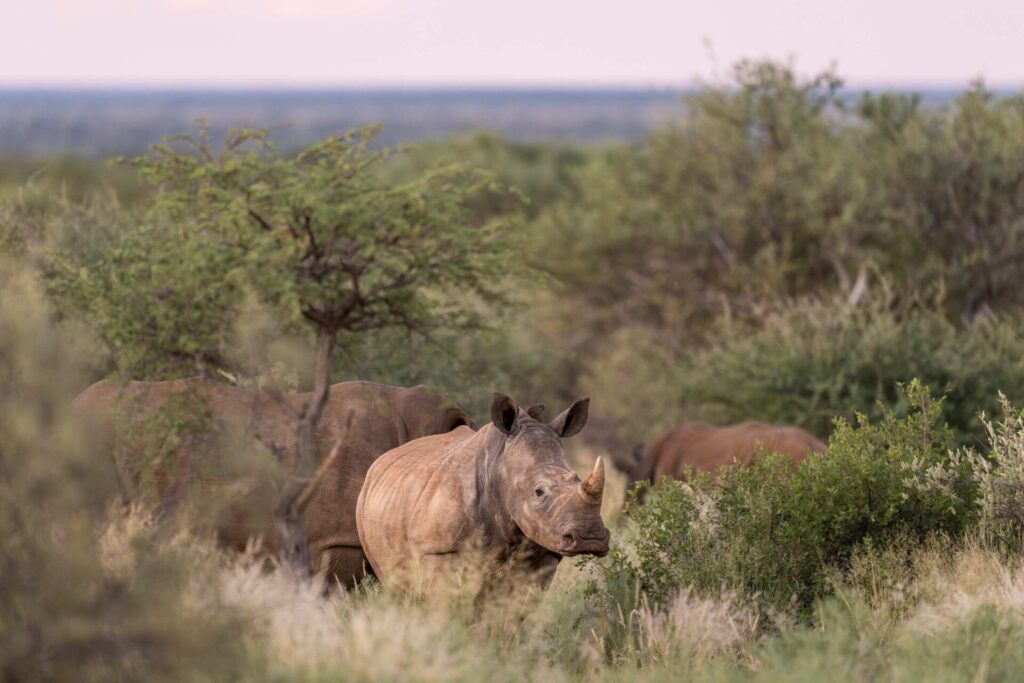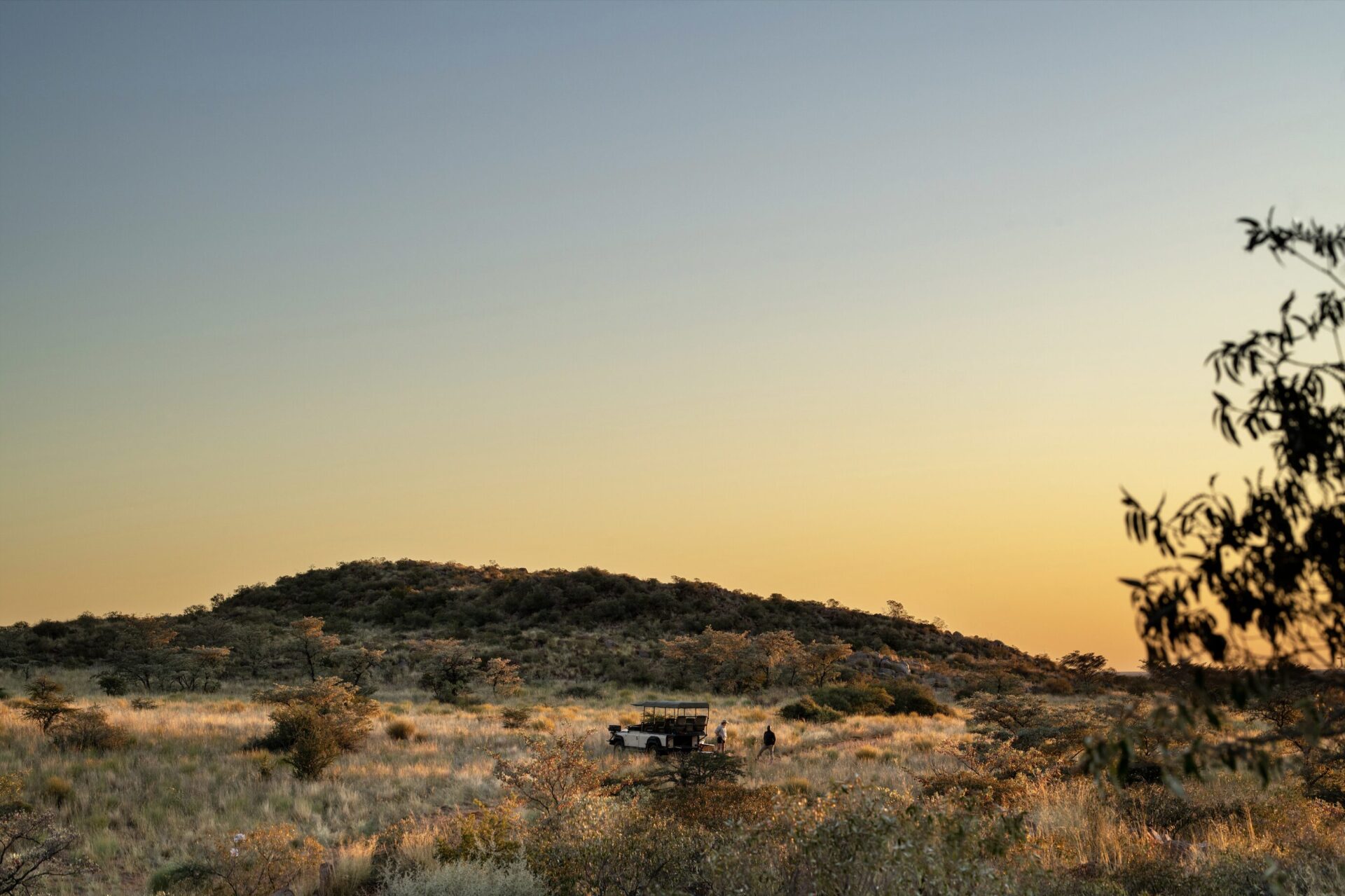Tswalu’s Pioneering Carbon Credit Project
Tswalu has become the first privately protected area in southern Africa to earn carbon credits as a result of wildlife management interventions, creating a pioneering model that has the potential to restore ecosystems, fund conservation and community development, and provide meaningful economic benefits to local communities.
This historic achievement emerged through a strategic collaboration between Tswalu, South Africa’s largest private game reserve spanning 118,000 hectares in the Northern Cape, and its development partners Oppenheimer Generations Research & Conservation and Rewild Capital, who provided the technical expertise to design and implement the carbon project.
How the project works
Unlike traditional carbon projects that focus on avoiding future emissions, this initiative actively removes carbon dioxide from the atmosphere as a result of conservative grazing management. The project operates as a genuine removals initiative, drawing down CO₂ and storing it in soil through carefully managed regenerative practices.
By reducing grazing pressure across the reserve’s almost 1200-square-kilometre fenced expanse, grasslands have been left to recover naturally. This restoration process dramatically increases the land’s ability to sequester carbon in soil.
Soil is nature’s carbon bank account – healthy grasslands can store massive amounts of carbon dioxide from the atmosphere underground in their root systems and soil. Tswalu’s conservative approach to stocking rates has improved the health of the veld, or grasslands, and benefited carbon sequestration. Managing wildlife populations gives the veld time to recover.

As an example, over five years, grass cover increased from an average of 38% in 2017 to an impressive 57% in 2022. Healthier grasslands mean more plant roots growing deep into the soil, storing carbon that would otherwise be heating up the atmosphere.
This transformation represents not just visual improvement but measurable carbon storage that’s verified through a network of 59 soil carbon monitoring stations established across the reserve. Because these credits are verified through actual soil samples rather than theoretical projections, they’re considered to have significantly higher integrity than many alternatives in the carbon market.
Verification and results
The Tswalu initiative is certified by Credible Carbon, a South African carbon registry that validates projects using independent auditors and UN-approved methodologies. Credible Carbon certified 34,471 verified carbon units from the first vintage period in 2022. After using 6,179 credits to offset Tswalu’s operational emissions from 2019 to present (demonstrating a commitment to net-positive impact), the remaining credits were released for sale. Subsequently, 4000 credits have been bought by Nutec and 1200 credits by the Earthshot Prize.
A second vintage of credits will be issued in the final quarter of 2025 after a follow-up audit. Soil carbon data have shown there has been significant sequestration of carbon dioxide between the first and second audit periods, showing the effectiveness of Tswalu management.
Tswalu’s carbon credit project is designed to run until 2039, with an expected total of 274,534 carbon credits to be issued over its 21-year lifetime. New batches of verified credits will be released every three years following soil carbon re-measurement and third-party auditing, ensuring continuous climate impact and revenue generation.

Regenerative conservation in action
What truly sets this project apart is how it aligns with Tswalu’s regenerative vision to restore the southern Kalahari and, in so doing, leave the world better than it was found. The Tswalu of today is a consolidation of over 50 farms. Over time, habitats have been brought back into balance, biodiversity has increased, and rare and threatened species have been successfully reintroduced.
What was once agricultural land has been transformed into vital habitat that sustains wildlife and supports an incredible diversity of life, from 70 dung beetle species and 75 mammal species to 24 protected plant species.
This project also demonstrates the inextricable link between environmental conservation and community development. The employment opportunities created through nature-based tourism and conservation far exceed what the previous agricultural land use could provide in the Northern Cape. Tswalu’s commitment to the welfare of the community living and working on the reserve includes the provision of accommodation with utilities, free access to healthcare, and educational opportunities for young and old.

A model for the future
Matthew Child of Rewild Capital confirms that the project’s impact extends well beyond Tswalu’s boundaries. “The Tswalu project serves as a model for how wildlife and rewilding can be utilised to restore ecosystem functioning, pioneering an innovative solution for other protected areas in South Africa and beyond. This scalable approach offers hope for transforming conservation across southern Africa and beyond. If the Tswalu model is adopted by more reserves, it could potentially transform how conservation is funded.”
Conclusion
At Tswalu, the revenue from selling carbon credits will be channelled back into conservation, which comes at a significant cost in a privately protected area. Every hectare restored and every ton of carbon sequestered contributes to the Oppenheimers’ vision of regenerative stewardship. This project has become a milestone in Tswalu’s regenerative journey to leave the world better than it was found, while offering a replicable model for conservation funding that doesn’t rely solely on philanthropy or tourism revenue.
Images: Marcus Westberg
